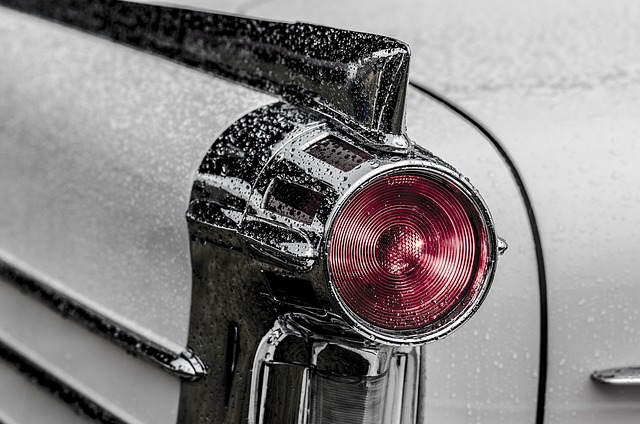PCP vs. Personal Loan: A Comprehensive Guide to Car Financing Options in the UK
In the UK, Personal Contract Purchase (PCP) and personal loans are two popular car financing option…….

In the UK, Personal Contract Purchase (PCP) and personal loans are two popular car financing options. PCP involves an initial deposit followed by fixed payments over a term, with a final decision to return, buy, or trade the vehicle at the end of the contract. PCPs offer cost savings through structured repayments that account for vehicle depreciation, but they come with mileage limits and potential extra charges if these are exceeded. PCP claims in the UK market must be transparent and fair as per the Consumer Rights Act 2015, safeguarding consumers against misleading practices. When a PCP contract concludes, the PCP claim represents the outstanding balance due after accounting for the deposit, payments made, and depreciation estimated at the outset. The actual market value of the car at this point will determine the final balloon payment or any equity if the vehicle is worth more. Personal loans, on the other hand, offer a fixed repayment amount over a set term with immediate vehicle ownership, but typically come with higher monthly costs compared to PCPs. Consumers should compare PCP claims UK offers and interest rates carefully to make an informed decision based on their financial situation and future car financing needs.
When considering the acquisition of a new vehicle, discerning consumers often weigh their financing options carefully. In the UK market, two prevalent choices stand out: Personal Contract Purchase (PCP) and personal loans for cars. This article delves into the nuances of PCP agreements, shedding light on pcp claims in the UK context, and contrasts them with traditional personal car loans. Through a detailed comparative analysis, we explore the pros and cons of PCP arrangements, their effects on ownership, and how to navigate pcp claims effectively. Whether you’re looking for cost-effective monthly payments or the freedom of outright ownership, understanding your financing options is paramount. We aim to equip you with the knowledge to make an informed decision between PCP and a personal loan for cars, considering key factors that influence car finance in the UK.
- Understanding PCP (Personal Contract Purchase) and Its Claims in the UK Market
- PCP vs Personal Loan for Cars: A Comparative Analysis of Financing Options
- The Pros and Cons of PCP Agreements and Their Impact on Car Ownership
- Navigating PCP Claims: What to Expect and How to Manage Them Effectively
- Key Considerations When Choosing Between PCP and Personal Loan for Car Financing in the UK
Understanding PCP (Personal Contract Purchase) and Its Claims in the UK Market

In the UK market, PCP or Personal Contract Purchase has become a popular financing option for those looking to acquire a new car. PCP claims often highlight its benefits, which include lower monthly payments compared to other forms of car finance like hire purchase or personal loans. This is because with PCP, you’re effectively paying for the depreciation of the car over an agreed term, rather than the entire capital cost. At the end of the agreement, you have three options: return the car to the finance company, pay a final lump sum to own it outright, or part-exchange it and continue with a new agreement. The PCP claims in the UK underscore its flexibility, as customers can tailor their agreements based on their budgetary needs and mileage expectations. This financial structure is designed to align with the average car’s depreciation curve, making it an attractive option for those who prefer lower monthly costs and are prepared for a balloon payment at the end of the term. It’s important for potential customers to understand the terms and conditions associated with PCP agreements, including the mileage limits set at the outset, as exceeding this can lead to significant additional charges. Prospective car buyers in the UK should thoroughly assess PCP claims against their personal circumstances and financial plans, ensuring they are fully informed about how PCP works and its implications for vehicle ownership down the line.
PCP vs Personal Loan for Cars: A Comparative Analysis of Financing Options

When considering finance options for purchasing a car, both Personal Contract Purchase (PCP) and personal loans are popular choices among consumers in the UK. A PCP agreement is a form of loan that allows you to pay an initial deposit followed by fixed payments over a term agreement. At the end of the contract, you have the option to return the car, purchase it outright, or part-exchange it for another model. One of the key advantages of PCP claims in the UK is the flexibility they offer; however, it’s crucial to understand the terms and conditions, as the car will belong to the finance company until the final payment is made and the optional final payment (balloon payment) is settled.
In contrast, a personal loan for a car requires you to borrow a set amount of money from a lender, which you then repay with fixed monthly payments over an agreed term. The difference here is that you own the vehicle from the moment of purchase, as opposed to PCP where the finance company retains ownership until the contract’s end. Personal loans are typically unsecured, meaning they don’t require any form of security against the loan. The appeal of personal loans lies in their transparency; you know exactly what you’re paying back and when. Additionally, once the loan is paid off, the car is fully yours to keep. When comparing PCP claims with personal loans, it’s important to assess factors such as APR, monthly payments, and the total amount repayable to determine which option best suits your financial situation and car purchasing needs.
The Pros and Cons of PCP Agreements and Their Impact on Car Ownership

When considering financing options for acquiring a car, Personal Contract Purchase (PCP) agreements are a popular choice among consumers in the UK. PCP plans offer a structured repayment period with flexible terms, often resulting in lower monthly payments compared to personal loans or hire purchase agreements. One of the primary pros of opting for a PCP is the ability to defer a significant portion of the car’s value until the end of the agreement. This means you can drive a newer model while only paying for a portion of its value over the contract term. However, it’s crucial to understand the implications at the end of the PCP term. Upon completion of the agreement, you have the option to return the car, pay a final lump sum to own it outright, or part-exchange it and take out another PCP or loan for your next vehicle.
PCP claims, such as those under the Consumer Rights Act 2015 in the UK, protect consumers against unfair practices in these agreements. If a PCP agreement is mis-sold or includes unfavorable terms that were not fully explained, consumers may be entitled to make a PCP claim. These claims can lead to compensation or the restructuring of the agreement to make it more favorable for the consumer. It’s important to review the terms and conditions of a PCP carefully before entering into one, as the car’s future value, which is uncertain, can impact your final payment. Additionally, mileage restrictions and excess mileage charges are common in PCP agreements and can add to the overall cost if not adhered to. While PCPs offer benefits for those looking to upgrade their vehicles regularly, they also come with obligations and potential pitfalls that must be carefully considered.
Navigating PCP Claims: What to Expect and How to Manage Them Effectively

When considering financing for purchasing a car in the UK, Personal Contract Purchase (PCP) and personal loans are two popular options. Navigating PCP claims can be straightforward once you understand the process and what to expect. A PCP claim typically arises at the end of your agreement when you opt to purchase the car outright. It’s a financial claim that represents the remaining balance after accounting for all payments made during the term of the contract, the initial deposit, and a depreciation figure based on industry guidelines. To manage PCP claims effectively, it’s crucial to keep records of your payments and understand the future value of the car, as this will influence the final balloon payment. If you decide to hand back the vehicle, the PCP claim is your right to settle the final amount if the car is worth less than the guaranteed future value stated at the start of the agreement. By understanding the terms and conditions of your PCP agreement, you can navigate through PCP claims with confidence, ensuring a smooth transition whether you opt to buy the car outright or choose another vehicle.
Managing PCP claims involves careful planning and a clear understanding of how the final payment is calculated. This includes considering the car’s expected future value at the end of the contract, which is an estimate made at the start of the agreement. It’s important to note that the actual market value at the end of your contract could be different, so you should assess this when deciding whether to return the vehicle or purchase it outright. If you choose to buy the car and the PCP claim is less than the balloon payment agreed upon, the difference will be your property. Conversely, if the car’s value is lower than the outstanding balance, you may need to pay the difference to settle the agreement. Understanding your rights and obligations under a PCP contract is key to managing PCP claims effectively and making informed decisions about your vehicle financing.
Key Considerations When Choosing Between PCP and Personal Loan for Car Financing in the UK

When considering car financing options in the UK, potential buyers are often faced with a choice between Personal Contract Purchase (PCP) and Personal Loans. Both methods offer unique advantages that can significantly impact your financial situation and long-term ownership experience.
PCP is a popular choice for car financing due to its affordability and flexibility. It allows you to pay an initial deposit followed by fixed monthly payments for the agreement term, typically 24 to 36 months. At the end of the contract, you have three options: return the vehicle, purchase it outright via a final lump sum payment, or part-exchange it towards another car. PCP can be particularly appealing if you anticipate that your financial circumstances will change over time, as it provides this flexibility at the end of the term. Additionally, PCP often includes a Guaranteed Future Value (GFV), which is the estimated value of the car at the end of the contract, locking in potential depreciation and enabling more affordable monthly repayments compared to other finance options.
On the other hand, a Personal Loan for car financing is a straightforward option where you borrow a fixed amount of money and repay it with fixed interest over an agreed term. This method does not include any balloon payment as seen in PCP contracts, which can make budgeting easier for some consumers. With a Personal Loan, you own the car outright from the moment you drive it off the forecourt. There are no end-of-term decisions to make; you simply repay the loan according to the terms agreed upon with the lender. However, it’s important to compare PCP claims UK to understand the potential savings and risks associated with each finance type. PCP claim values can vary significantly between different finance providers, so conducting thorough research or consulting a financial advisor is crucial to ensure you’re getting the best deal for your situation. When considering a Personal Loan, consider the interest rate carefully, as this will affect the total amount repaid and the monthly payments. Both options have their merits, and the choice between PCP and a Personal Loan should be based on your financial planning, desired car model, and future car purchasing intentions.
When considering financing options for a new car in the UK, both PCP (Personal Contract Purchase) and personal loans are viable paths, each with its unique benefits and considerations. This article has delved into the intricacies of PCP agreements, their claims within the UK market, and how they compare to personal loans. It’s clear that while PCP can offer flexibility and potentially lower monthly payments, it’s essential to understand the commitment involved at the end of the contract. On the other hand, a personal loan for cars provides straightforward financing with full ownership from the outset. Ultimately, your choice should align with your financial situation and car usage needs. For those looking to navigate PCP claims responsibly, it’s crucial to engage with the terms thoroughly and consider the long-term implications. By weighing the pros and cons of each option, you can make an informed decision that suits your circumstances, ensuring a satisfying car ownership experience without overcommitting.







